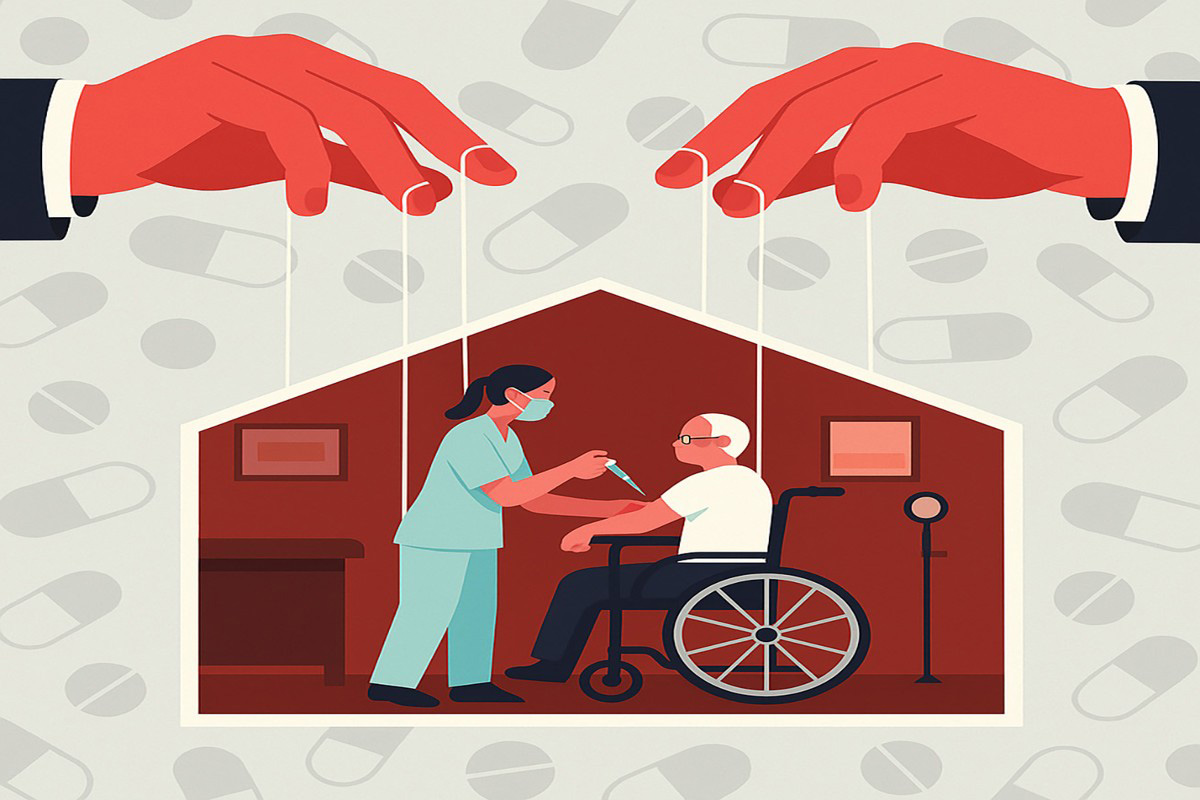3 Narratives News | September 12, 2025
Canada is proud of its healthcare system — but some physicians say speaking too candidly can cost them their license. We investigate how oversight protects patients, but may also punish dissent.
After our RFK Jr. coverage, physicians wrote to us, off the record, fearing that candid speech could end their careers.
Carlos Taylhardat | Vancouver
Behind Closed Doors
In my earlier life as a portrait photographer at Art of Headshots, I often found myself in quiet moments with physicians. Behind the lens, I noticed something: not just dedication, but a kind of caution. Doctors hinted at what they could not say publicly. It left me wondering — are Canadian physicians free to practice medicine and speak truth as they see it, or are they navigating a maze of restrictions?
“We see the signals of something amiss before the research is done. If we aren’t allowed to speak up, patient safety is not addressed in a timely fashion.” — Canadian physician, speaking off record
How the Disciplinary System Works
In Canada, each province has a College of Physicians and Surgeons that licenses and disciplines doctors. In the U.S., state boards serve a similar role, feeding records into the National Practitioner Data Bank (NPDB), a federal clearinghouse that shadows doctors across their careers.
Regulators say: these mechanisms protect patients and uphold trust. Doctors say: they can just as easily punish dissent as they do negligence.
Numbers that matter: In 2023, Ontario’s College launched 256 new investigations, with 98 disciplinary hearings. In the U.S., the Federation of State Medical Boards reported 6,601 disciplinary actions affecting 3,023 physicians in 2024.
Protecting Patients and Public Trust
Medical colleges argue their mandate is clear: safeguard patients. In Canada, oversight includes not just what happens in the exam room but also how physicians represent themselves online. The College of Physicians and Surgeons of Ontario (CPSO) warns that even personal social media posts may be judged against professional standards.
“Patients may delay needed care, and at the same time doctors feel pressure to retreat from public conversations when their voices are most needed.” — Canada’s Health Minister, 2024
The Chilling Effect
Doctors who contacted 3 Narratives describe a climate of self-censorship. The risk of board inquiries or NPDB flags makes them hesitate before posting, even about their own health.
One Vancouver doctor crossed the border to the U.S. for treatment, saying she no longer trusted her own system. After two decades of practice, she surrendered her license and opened an alternative medicine clinic. “It wasn’t worth the fear of speaking,” she told us.
Another physician described her concerns about vaccine trial design — only on condition of anonymity: “The overall safety of the childhood schedule has not been studied as a whole. Even raising this risks being cast as spreading misinformation.”
Case Study: In 2021, Alberta physician Dr. Chris Milburn faced discipline after criticizing COVID-19 policy. His case reflected the fine line between professional disagreement and sanctioned speech.
The Silent Story — What We Lose
No regulator measures the opportunity cost. When rural doctors avoid critiquing flawed policies, or safety-net physicians hesitate to share community protocols, patients lose unseen benefits.
The NPDB, for instance, cannot distinguish between a reckless actor and a conscientious dissenter. And while reputational harm is immediate, due-process protections vary across provinces and states.
Recent flashpoints sharpen the tension: California’s short-lived law AB 2098 classified COVID “misinformation” as unprofessional conduct — later repealed. In Canada, CPSO policy documents balance Charter rights with reputational duties, language that some doctors call a “tripwire.”
Key Takeaways
- Canada’s medical colleges license and discipline doctors; oversight protects patients but may also suppress dissent.
- U.S. doctors face federal NPDB reporting; Canadian doctors face provincial college scrutiny with similar consequences.
- Doctors describe a culture of self-censorship, fearing loss of license more than malpractice suits.
- Case studies show how questioning policy can lead to discipline — even when patient safety is at stake.
Questions This Article Answers
- How are doctors disciplined in Canada compared to the U.S.?
- What is the National Practitioner Data Bank (NPDB)?
- Why do some Canadian physicians fear losing their licenses for speaking out?
- How do oversight systems balance patient safety with free expression?
- What is the hidden cost of physician self-censorship?
